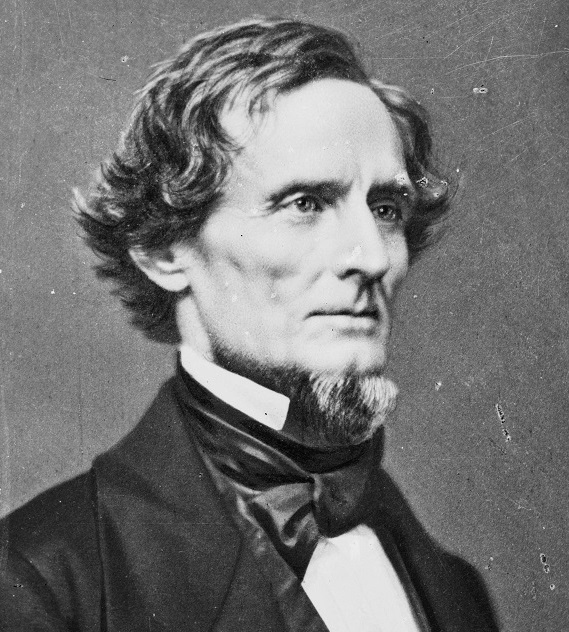Jefferson Davis was the conservative who tried vainly to save the Union in the face of Republican attempts to pit North against South, and force the South to seek a more perfect union without the North. The greatest ironies of that era was Rhode Island being the slave trading center of North America by 1750; Yankee inventor Eli Whitney making cotton planting more productive and thus perpetuating slavery; and the cotton mills of Massachusetts with their ravenous appetite for slave-produced cotton – they could have ended slavery easily:
“Davis appeared as a politician in 1843, and, indeed, as leader of the Democratic [Conservative] party of Mississippi. We pass over the different phases of the internal political life of the Union, in which the chasm which separated North and South was growing wider.
We can refer to only one incident and two speeches, the first of which Davis made on the occasion of his defense of the new railroad line, Mississippi-still Ocean, and in which he with glowing patriotism praised the strength of the bond which held together States of the Union; and the other of which was made by a man who, as a genuine radical, had opposed the war against Mexico as unnecessary and unconstitutional.
This other speaker said in a certain way eloquently giving momentum for the secession of the Southern States: Every people who have the will and power for it possess also the right to rise, shake off their government and establish a new one which suits them better. This is an invaluable, sacred right which will at some time free the world.
And who . . . was this man who in a certain manner pressed into the hands of the Southern States the right of throwing off a hated government? It was Abraham Lincoln, who made this speech on the 12th of February, 1848 in the House of Representatives. The one who praised and invoked the concord of the Union was, by his contemporaries, stigmatized as a traitor. The other is esteemed and venerated to-day by many, as the defender and preserver of the Union!
Only as a curious fact for the superficial critics of the whole conflict, it may here be stated that at the beginning of the settlement of the country, the Southern States had a greater aversion to slavery than the Northern States.
From 1720 to 1760, South Carolina unceasingly protested against the introduction of slave labor. Georgia forbade it by law. Virginia decidedly opposed it and levied a tax of ten dollars on each Negro. They were originally forced to adopt this [labor] system through the avarice of English merchants, and the despotism of the English ministers which had later, certainly for the South, its demoralizing features.
It was the South also which at first prohibited the slave trade, and Virginia at the head. When Jefferson Davis was born, the slave trade was in the hands of only Northern merchants who had made terms with the slave planters of South Carolina.
Other curious facts may here be introduced. A statue of Lincoln was executed, which represented him as loosing the chains of the slave. What would the beholder say if the following words he wrote after the secession of South Carolina were chiseled on the pedestal:
“Does the South really fear that a Republican administration could directly or even indirectly interfere in its slave affairs? The South would in this matter be just as safe as in the time of Washington.” Or, that he wrote on the 4th of May, 1861: “I have not the intention of attacking the institution of slavery; I have no legal right, and certainly no inclination to do it, etc, etc.”
(Jefferson Davis, Southern Historical Papers, R.A. Brock, Editor, Volume XIX, 1891, pp. 409-410)







